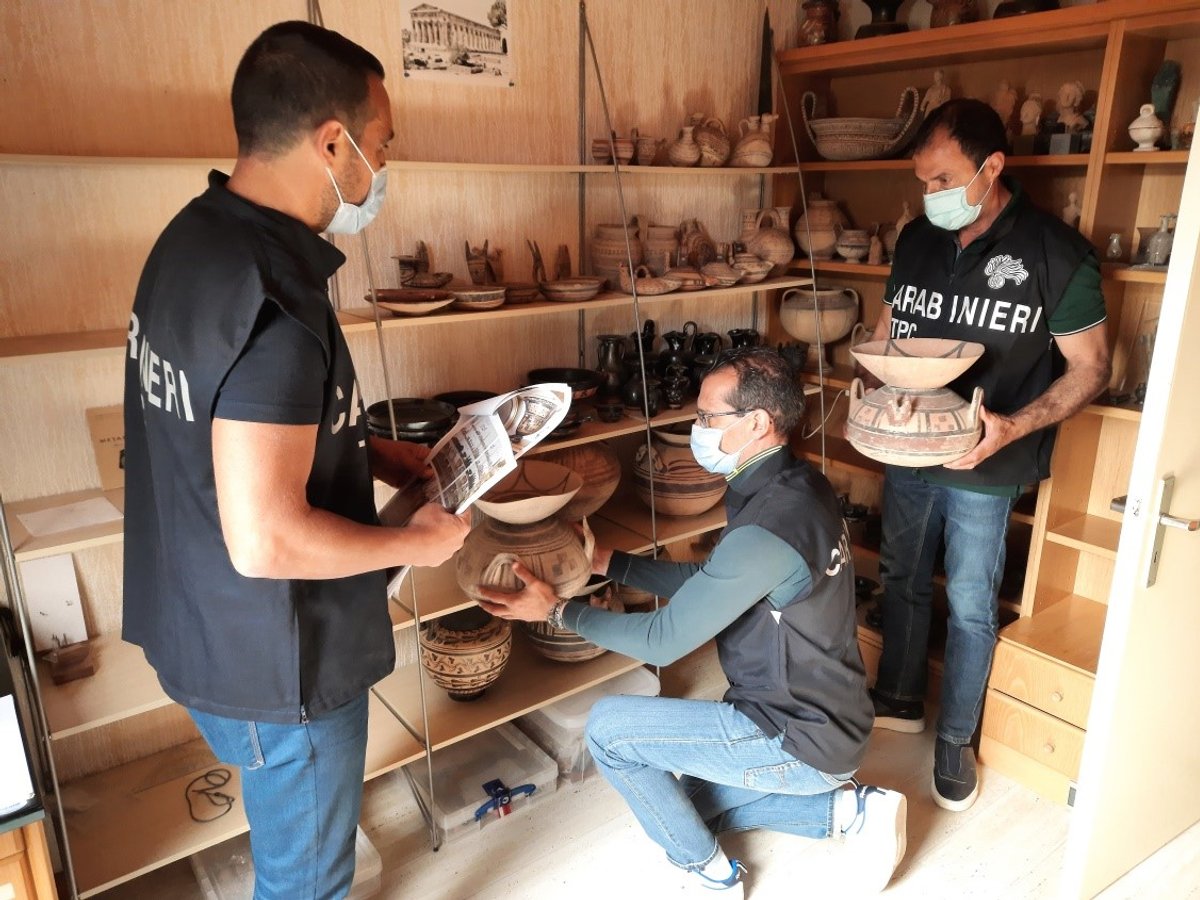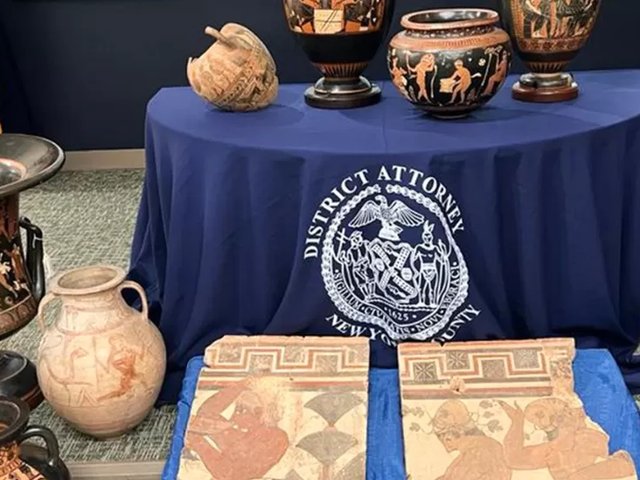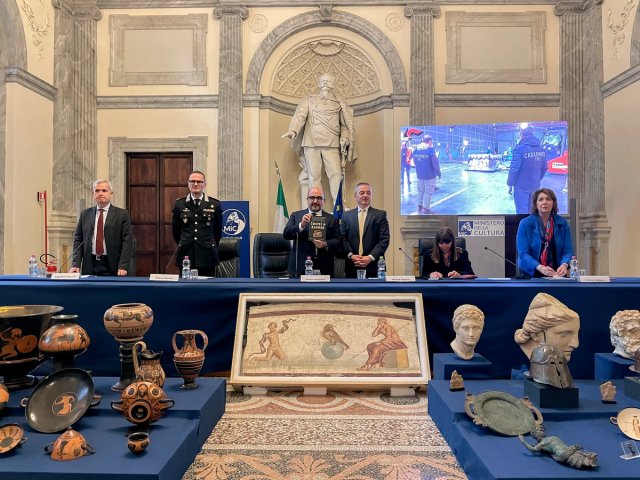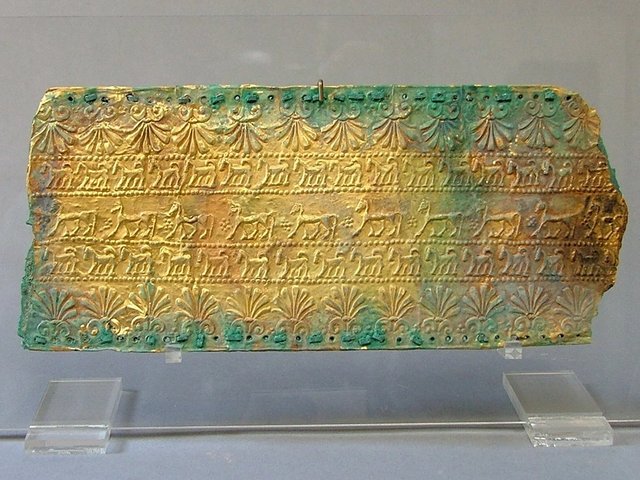Almost 800 rare archaeological artefacts and ceramics have been returned to Puglia, in Italy, after their confiscation from a Belgian art collector. The items had been excavated without authorisation, and then exported from Italy illegally.
According to the Italian Carabinieri, this is the largest ever return of plundered artefacts from the Puglia region, and one of the most significant at the national level. Dating back to 600BC, the pieces in the collection are estimated to be worth a total of €11m (£9.4m).
The return, announced this week, is the result of an investigation by the Carabinieri division specialising in the protection of cultural heritage. This began in 2017 after experts in a regional archaeology laboratory raised concerns about a rare Daunian stela, or tombstone, they had seen in an exhibition catalogue from the mid-1990s. The exhibition, exploring the art of the Italian peoples from 3000 BC to 300 BC, took place at the Rath Museum in Geneva, and at the Mona-Bismarck Foundation in Paris.
The tombstone that caught the archaeologists’ attention had decorative features that were highly specific to the ancient Italian settlement of Salapia, close to Foggia. But it was also missing some fragments. One of these, a decorative inscription, was subsequently traced to the Archaeological Museum in Trinitapoli.
This was enough to start an Interpol investigation in Switzerland, which identified the owner of the tombstone: an art collector from Antwerp, Belgium. In December 2018 an order was issued for a search of his home, carried out by the Antwerp police and the Carabinieri, coordinated by the European Union Agency for Criminal Justice Cooperation (Eurojust).
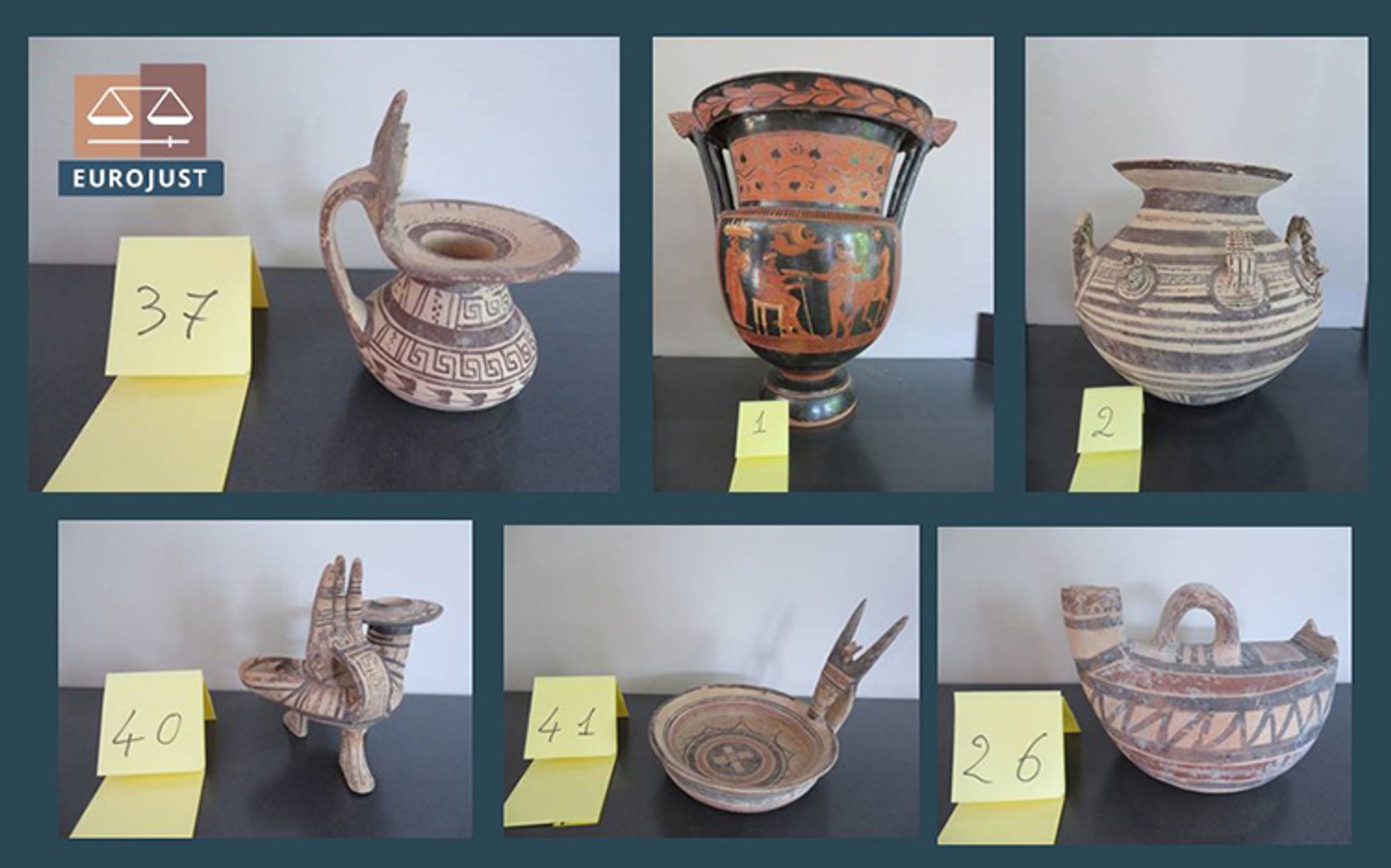
The discovery includes vases painted with red figures typical of Puglia, amphorae, black glazed ceramics, terracotta figurines, and further limestone stelae Courtesy of Eurojust
The Daunian tombstone was discovered on the premises, and found to be a perfect match with the fragment in the Trinitapoli museum. But the search also uncovered a hoard of other artefacts, including vases painted with red figures typical of Puglia, amphorae, black glazed ceramics, terracotta figurines and further limestone stelae.
According to the Carabinieri, 782 items were identified in the collection that could be considered Italian national heritage, and as such had been exported illegally. A request to bring them back to Italy for examination by archaeological experts was finally granted by the Belgian courts, despite several attempts by the unnamed Belgian collector to challenge the repatriation.
The returned objects were put on display this week at Castello Svevo in Bari. They will now be subject to further archaeological study, as the Carabinieri continues to investigate their provenance.


